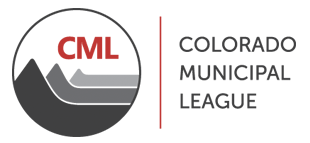Position Papers
In This Section
Author: Heather Stauffer
February 12, 2025
AMEND SENATE BILL 25-001
Colorado Voting Rights Act
Colorado’s towns and cities believe that free, fair, and accessible elections are vital to democracy, ensuring all eligible voters can participate without barriers. While municipalities support the bill’s intent, they have concerns about certain provisions that could hinder its successful implementation.
OUR REQUEST OF THE LEGISLATURE
Colorado’s constitution does not support the bill’s application to municipal elections. We request an amendment to exclude municipalities from the bill and apply the provisions to the state and coordinated elections only.
Please preserve local government’s ability to maintain control over their elections, avoid unnecessary litigation risks, and prevent undue financial burdens.
BACKGROUND
Among other provisions, SB25-001 creates the Colorado Voting Rights Act. The bill allows an individual or organization to file suit against a municipality alleging voter suppression, voter dilution, or an unlawful voting prerequisite based on gender identity, gender expression, or sexual orientation, and empowers the Attorney General’s office to investigate potential violations, file suit to enforce the act, or intervene in an individual or organization’s suit.
CONCERNS WITH SB25-001
- Conflict with Colorado Constitution
Colorado’s unique legal structure does not allow for state regulation of municipal elections. Article XX, Section 6 of the Colorado Constitution, explicitly grants municipalities control and power to regulate all matters pertaining to municipal elections in a city or town. The Colorado Supreme Court has expressly rejected that local elections are a matter of state or even mixed state and local concern. Extending state authority over the structure and elections of home rule municipalities, whether via oversight of state or private lawsuits, conflicts directly with the express text of the Colorado Constitution and well-established case law.
The following relevant cases further establish sole local authority over municipal elections.- People ex rel. Tate v. Prevost, 134 P. 129, 134 (Colo. 1913)
- Kingsley v. City & County of Denver, 247 P.2d 805, 808 (Colo. 1952)
- May v. Town of Mt. Village, 969 P.2d 790, 794 (Colo. App. 1998)
- In re City of Colorado Springs, 277 P.3d 937, 941 (Colo. App. 2012)
- The bill is not applied statewide
The bill does not include state elections, school districts or special districts elections. It is unclear why the bill excludes state elections, choosing instead to only focus on some local elections. Colorado’s municipalities have a proven track record of ensuring that elections are fair and equitable and that all voters have access to the political process. If the bill were addressed to state or coordinated elections or the structure of state offices, our concerns would be limited.
- Preservation of nonpartisan elections
Colorado’s municipal elections have a long tradition of avoiding partisan elections. We are concerned that the bill’s mandates try to make municipal elections align with partisan state and federal election calendars will erode the nonpartisan character of our elections and increase the potential for partisan influences in municipal elections.
- Lack of evidence supporting need
The unsupported suggestion that municipal elections are rife with discrimination or voter suppression damages the integrity of and public trust in local elections.- Through the use of mail ballots, Colorado’s municipal elections offer direct access to all eligible voters.
- The bill presumes the existence of voter suppression or systemic barriers, yet there is no demonstrated evidence of these issues in Colorado’s existing municipal elections. We have identified only one lawsuit brought against a Colorado municipality under the Federal Voting Rights Act and it was unsuccessful.
- It is unclear how or why current laws defining election offenses, ensuring equal protection, and otherwise protecting the franchise are insufficient
- Litigation risks and costs
- The use of ambiguous language and standards promises an expensive litigation that requires a substantial reliance on experts and will cost taxpayers substantial amounts if municipalities ever needed to defend a claim.
- The proposed resolution process, with its 90-day resolution requirement, fails to account for the need for charter elections in many cases.
- Some of the provisions appear to suggest that a violation may exist simply from following current state law. State law provides that towns elect trustees at large, yet the bill suggests that such elections could be the basis for a claim.
- Municipalities have statutory options for filling vacancies, including appointments, vacancy elections, or taking no action, yet the bill seems to suggest that using those options is wrong.
- The bill’s standards and processes are inequitable. Litigants do not equally share in the risk of paying attorney’s fees and costs to a prevailing party.
- Unfunded Mandates and State Overreach
The bill imposes detailed reporting requirements and expands the Secretary of State’s investigative powers without providing necessary funding or resources to municipalities.
WE RESPECTFULLY REQUEST LEGISLATORS AMEND SB25-001
CML urges legislators to exclude municipalities from the bill and apply the provisions to the state and coordinated elections only.
CONTACT
Heather Stauffer, CML legislative advocacy managerAdditional Resources
- Downloadable Position Paper for SB25-001 (PDF)
- Current draft of SB25-001
- Track SB25-001 in the legislature
